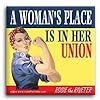
A Goodreads user
asked:
Toward the end of the book it was emphasized Louise was destitute. Why didn't she have any money? She was paid and they mentioned Louise didn't spend much on clothing (accepting hand-me-downs), and she ate at the Masses' house.
To answer questions about
The Perfect Nanny,
please sign up.
Pat
I had the same question. Obviously the Massies paid her the going rate for nannies - they specifically didn't want to hire an illegal, who could be taken advantage of, and Mr. Massie said himself that (presumably after taxes and the nanny's salary were subtracted from the wife's wages, there wouldn't be much left, but he was willing for her to go back to work if it would make his wife happier. She wasn't paying her bills, and she hardly had to buy food as she ate mostly at her employers' so where did her salary go? Did she just not realize she had it? I find it hard to believe she was so destitute. (Of course once Mrs. Massie made partner her income as a lawyer could have increased substantially.)
A lot has been made of this book being about classism and the employer's being entitled and taking advantage of their nanny, but don't see that. The Massies were hardly living a glittering life. They both worked, their apartment was so small they partitioned their bedroom out of their living room and it was described as stifling. They both worked to exhaustion, they didn't seem to splurge much. They took one vacation a year, hardly seemed to live a high life and supported five lives on their two salaries, counting the nanny. The one indulgence mentioned is Paul buying, with some embarrassment, a second hand Rolex at a "very good price". Yet I hear this book described as a study in classism and racism, neither making any sense.
The nanny is obviously mentally challenged, she seems overwhelmed by math (according to her daughter, whose fate is also ambiguous). But the whole issue of finance is so unexplained that I wonder if the nanny simply didn't understand what she had. And so mentally challenged she didn't know how to ask for help. I don't see the Massies as being unkind or uncaring - they offered help, and when she didn't respond, they respected her -- as an adult - she was older than them - to handle her own problems. Are they to blame for not treating her as a child and forcing themselves into her life? I don't think they realized how challenged she was - frankly, as a reader I only came to the conclusion late that she was deficient in more than one respect. I came to suspect that she could do house work and play with kids but more than that was beyond her. Perhaps that's why she kept such detailed notes in her notebook.
The why of what happened is still a mystery to me. While the book was engaging I still don't like books that have such gaps in such a significant motivation.
A lot has been made of this book being about classism and the employer's being entitled and taking advantage of their nanny, but don't see that. The Massies were hardly living a glittering life. They both worked, their apartment was so small they partitioned their bedroom out of their living room and it was described as stifling. They both worked to exhaustion, they didn't seem to splurge much. They took one vacation a year, hardly seemed to live a high life and supported five lives on their two salaries, counting the nanny. The one indulgence mentioned is Paul buying, with some embarrassment, a second hand Rolex at a "very good price". Yet I hear this book described as a study in classism and racism, neither making any sense.
The nanny is obviously mentally challenged, she seems overwhelmed by math (according to her daughter, whose fate is also ambiguous). But the whole issue of finance is so unexplained that I wonder if the nanny simply didn't understand what she had. And so mentally challenged she didn't know how to ask for help. I don't see the Massies as being unkind or uncaring - they offered help, and when she didn't respond, they respected her -- as an adult - she was older than them - to handle her own problems. Are they to blame for not treating her as a child and forcing themselves into her life? I don't think they realized how challenged she was - frankly, as a reader I only came to the conclusion late that she was deficient in more than one respect. I came to suspect that she could do house work and play with kids but more than that was beyond her. Perhaps that's why she kept such detailed notes in her notebook.
The why of what happened is still a mystery to me. While the book was engaging I still don't like books that have such gaps in such a significant motivation.
kejt75
This answer contains spoilers…
(view spoiler)
Julie Taylor
I don't think she's cashing her cheques. Or at least cashing them rarely.
There are a lot of secrets in the book so we can't really know Louise. There is reference made to her time in a hospital and there is one sentence about a bailiff who is kind to her, so she may have done time before for another violent event. The book doesn't tell us enough about her to understand her financial situation. I do believe the family is paying her, but the job for her is not about the money, it's about being a contributing member of a family. Considering she doesn't open her mail, pay her taxes, pay her rent on time, I think the also does not cash her cheques and that's an aspect of her mental illness.
There are a lot of secrets in the book so we can't really know Louise. There is reference made to her time in a hospital and there is one sentence about a bailiff who is kind to her, so she may have done time before for another violent event. The book doesn't tell us enough about her to understand her financial situation. I do believe the family is paying her, but the job for her is not about the money, it's about being a contributing member of a family. Considering she doesn't open her mail, pay her taxes, pay her rent on time, I think the also does not cash her cheques and that's an aspect of her mental illness.
Kirsten
The book makes it very clear - she was being held responsible for her late husband's medical and legal bills.
Kate Vincent
Not only the mortgage but there is a reference to medical bills and all the legal expenses racked up by her husband. I also wonder if it is part of that sense that sometimes we don't really know much about other people and their secrets, even if they are a significant part of our lives.
Janet
I think she was also confused, not opening her bills, overwhelmed, terrified to deal with real world demands
Cris
This answer contains spoilers…
(view spoiler)
Judy Lindow
Her husband's debts, relatively low-wages (she was probably paid under the table and had no benefits), medical bills (specifically we're told she was hospitalized for mood disorders) she probably did not have any medical insurance, rents where people have no other options, no experience living on her own, she seemed to be mentally (IQ) and emotionally (mental illness) challenged - and the thing that makes me angriest: she was a target for people who would take advantage of her, money wise (for example, the landlord, she should have been helped to get out from behind of her husbands debt, etc.)
AJ
This answer contains spoilers…
(view spoiler)
Kelly B
I got the impression the Massies didn’t pay her all that welli, and that her landlord was overcharging her.
Robbie Z
I had the same question. After selling the house and starting over in a tiny apartment, I would have thought she could have at least had enough income to minimally survive. It didn't seem to "ring true" with the information provided in the story. She did seem to be mentally challenged about some things, but at the same time, it seems like that would have been easily detected by her employers. She appeared to be a very capable cook, party planner, etc. which debunks that theory. A good book, but did come with some holes in the story.
Noël
Additionally, the house was repossessed.
Saskia
This answer contains spoilers…
(view spoiler)
Rita P Smits
On top of everything that was already answered (including clear mental illness from Louise, who is not taking care of her affairs properly), I think that this issue is really besides the point that the author is trying to make. It can still be a book about class and about financial despair, but that is all nuanced and coupled with a lot of other elements. The stress here is not that the Masses' family didn't pay well or did not want to help - it's that they just did not care enough to ascertain about these deeper questions. That is very evident in the end of the book, when Myriam finally asks herself "where does Louise live, after all? What does she do, when she is not with us?" and this interest comes too late.
lucky little cat
In 2012, the NYC family whose story is the basis of the novel, paid their nanny $550 weekly, which comes to $27,500 annually before taxes, without benefits. They offered her an additional $100 per week if she would do an additional 5 hours of cleaning, so 45 hours of work weekly for $32,500 before taxes, no benefits.
Slimani has the nanny's pay cancel a beginning lawyer's salary. But honestly, if the mother made $50,000, she's splitting her salary with the nanny & earning less than the nanny. (But w/ benefits.) So the mother could earn that much and still see it as a wash.
Also, the novel is set in Paris, and city living is expensive.
Slimani has the nanny's pay cancel a beginning lawyer's salary. But honestly, if the mother made $50,000, she's splitting her salary with the nanny & earning less than the nanny. (But w/ benefits.) So the mother could earn that much and still see it as a wash.
Also, the novel is set in Paris, and city living is expensive.
Laura L.
This answer contains spoilers…
(view spoiler)
Marie
I asked myself the same question. Although she was riddled with debt when her husband died, she sold the house, which should have more than paid them back.
Zoe
This answer contains spoilers…
(view spoiler)
Laiba
I think all her salary was being deducted for the debts and taxes her husband left her with.
Joe
On top of all the other answers to this question, pg 155 references her diagnosis of delirious melancholia and pg 156 references her growing medical expenses. I assumed that this is where her most of her money went.
Mhairi Ledgerwood
This answer contains spoilers…
(view spoiler)
Trudy Crippen
She was deeply in debt.
Liz
This answer contains spoilers…
(view spoiler)
Lisa Richards
I I seem to remember the husband saying that the Nanny would be making about the same thing the wife did but if it made her happy working then to go ahead. I doubt the apartment cost her a lot so not real sure where the money went.
Sally Anfilogoff
Health care costs. Debts. Etc . About the only aspects of the book that rang true
About Goodreads Q&A
Ask and answer questions about books!
You can pose questions to the Goodreads community with Reader Q&A, or ask your favorite author a question with Ask the Author.
See Featured Authors Answering Questions
Learn more
























Dec 03, 2018 05:57AM · flag
May 07, 2019 10:14PM · flag